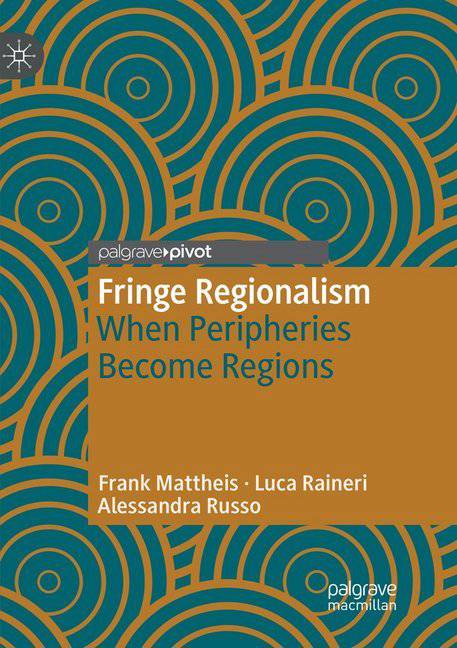
- Afhalen na 1 uur in een winkel met voorraad
- Gratis thuislevering in België vanaf € 30
- Ruim aanbod met 7 miljoen producten
- Afhalen na 1 uur in een winkel met voorraad
- Gratis thuislevering in België vanaf € 30
- Ruim aanbod met 7 miljoen producten
Zoeken
Fringe Regionalism
When Peripheries Become Regions
Frank Mattheis, Luca Raineri, Alessandra Russo
Paperback | Engels
€ 73,95
+ 147 punten
Uitvoering
Omschrijving
This book introduces the novel concept of fringe regionalism to the field of international studies. It examines how regions are practiced by peripheral borderlands rather than centrally planned, thus offering new avenues for researching regionalism beyond the conventional focus on formal intergovernmental organisations. Two in depth case studies, the Sahara and the Caucasus, provide the real-life application of the concept and the authors use the tensions between competing demarcations of the region, the regional nature of extra-legal economies and the narratives of cross-border identities to steer their empirical approach. Through thorough analysis, the volume applies the concept of fringe regionalism to regions previously neglected by conventional approaches.
Specificaties
Betrokkenen
- Auteur(s):
- Uitgeverij:
Inhoud
- Aantal bladzijden:
- 97
- Taal:
- Engels
Eigenschappen
- Productcode (EAN):
- 9783030073510
- Verschijningsdatum:
- 25/01/2019
- Uitvoering:
- Paperback
- Afmetingen:
- 148 mm x 6 mm
- Gewicht:
- 158 g

Alleen bij Standaard Boekhandel
+ 147 punten op je klantenkaart van Standaard Boekhandel
Beoordelingen
We publiceren alleen reviews die voldoen aan de voorwaarden voor reviews. Bekijk onze voorwaarden voor reviews.







